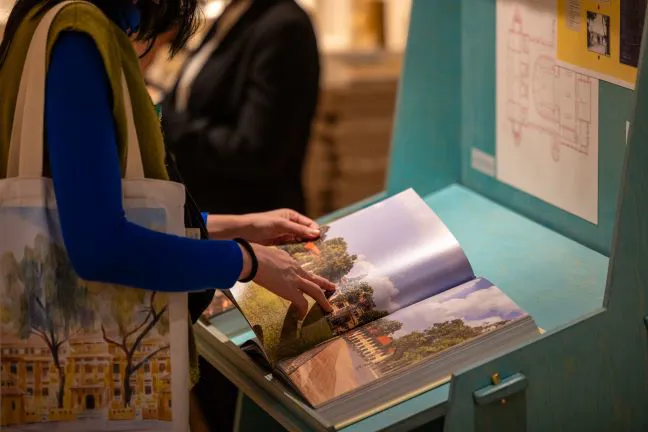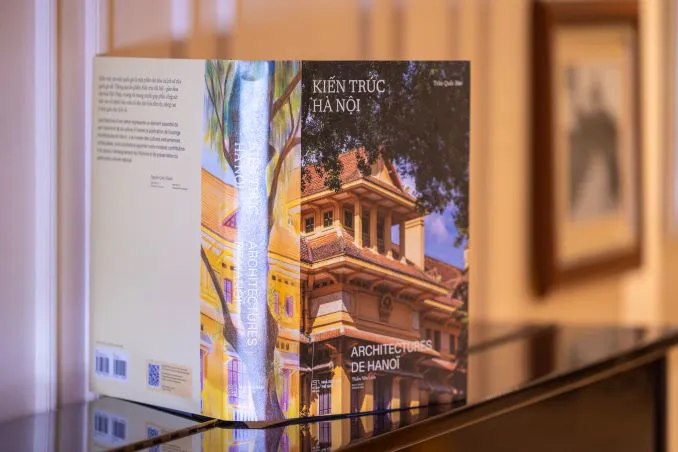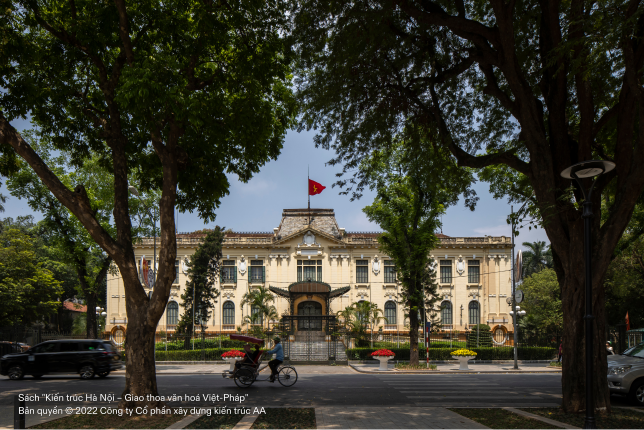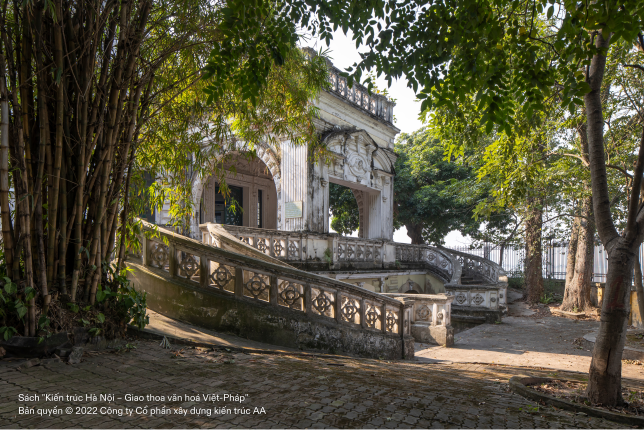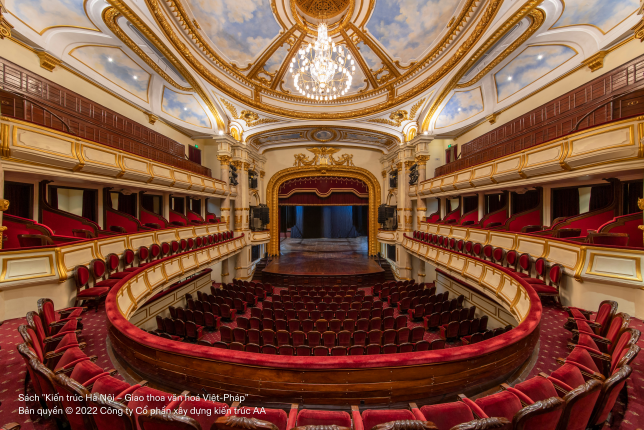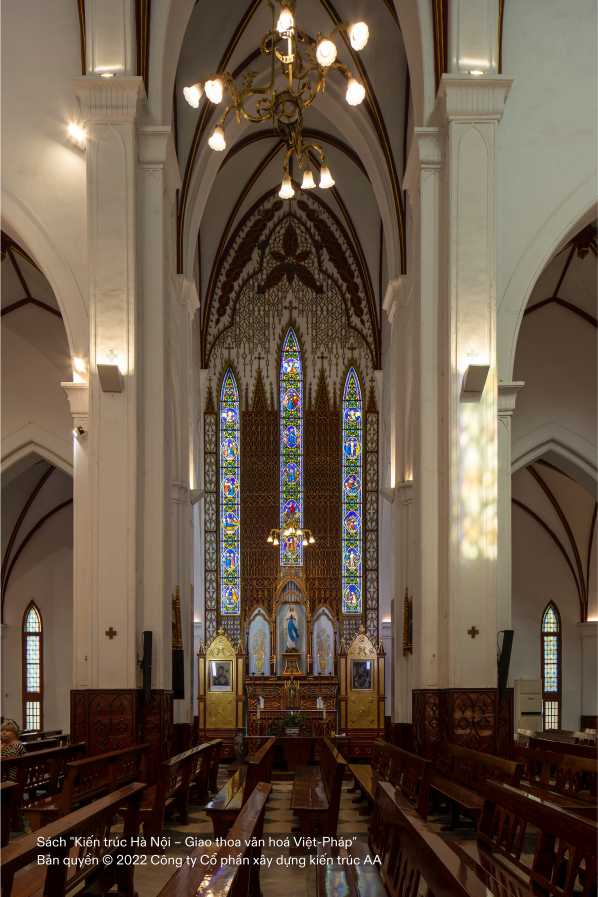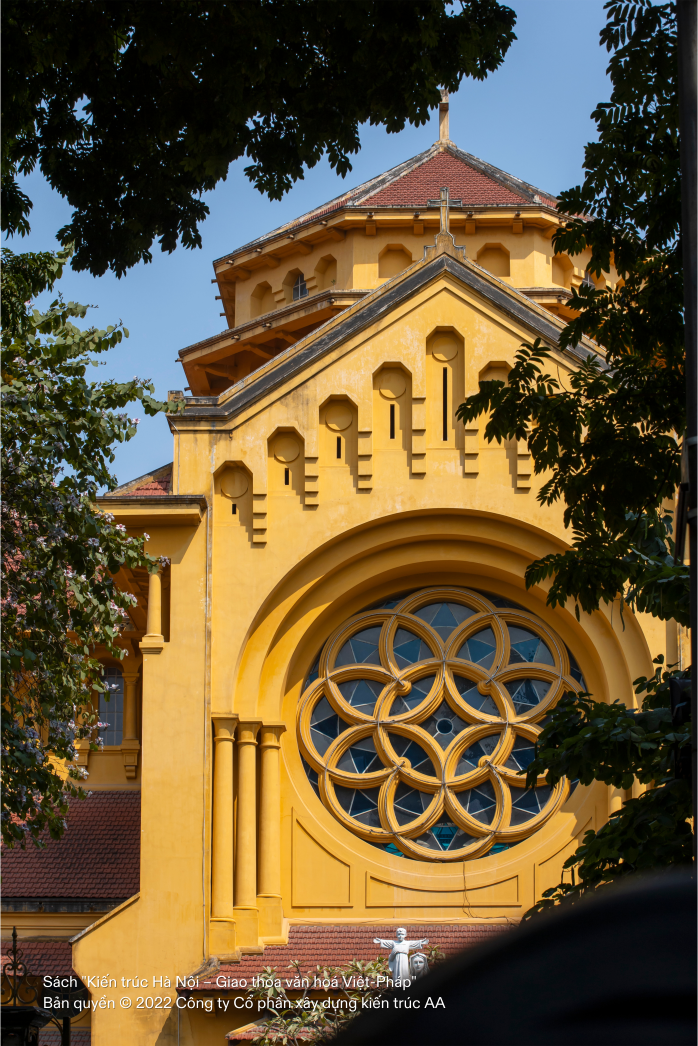New book celebrates Hanoi's architectural beauty through the ages
The bilingual book Hanoi Architecture - The cultural encounter between Vietnam and France contains valuable pictures of French architecture in Hanoi.
Beyond being an art book, Hanoi Architecture-The cultural intersection of Vietnam and France can be seen as an academic historical work, offering a youthful and artistic perspective on Hanoi’s architectural beauty through historical periods.
| The book offers a panoramic view of French architecture in Hanoi. Photo: Minh Son/The Hanoi Times |
Like a historical chronicle of Hanoi written through architectural art, the book provides readers with a panoramic view of Hanoi's architectural beauty through different periods: Part 1: Ancient Thang Long-Hanoi; Part 2: Hanoi's Colonial Architecture with styles such as Beaux-Arts, Art Deco, Indochine, Early Colonial, Steel Architecture and Gothic; and Part 3: Hanoi's Post-1954 Architecture.
Readers will feel as if they are watching a film about the history of Hanoi, or rather traveling back in time with the authors to 19th and 20th century Hanoi, exploring the nooks and crannies of 18 representative architectural works from various periods, especially those from the colonial era, such as the Presidential Palace, Hanoi Opera House, Government Guest House, Supreme People's Court, Hoa Lo Prison, Metropole Hanoi Hotel and Chu Van An High School Library.
From the foundational architecture of ancient Thang Long-Hanoi in the 18th century and earlier, with its "old paths for horse-drawn carriages" linking rustic areas with urban centers; to the transformative integration and adoption of Western architectural artistry during the colonial period, including Beaux-Arts, Art Deco and Gothic styles; to the fluid blend of global architectural excellence with local culture. Each piece of historic architecture is interpreted simply, gently, and emotionally.
It is evident to the readers that traditional Vietnamese decorative elements are woven into the Beaux-Arts grandeur of the Presidential Palace. Likewise, the State Bank of Vietnam and other classic Art Deco structures skilfully integrate exquisite Vietnamese features. These intersections, even as mere brushstrokes, clearly demonstrate the value and influence of Vietnamese culture and architecture on architects and historical architectural legacies such as French architecture.
| The book is printed in Vietnamese and French. Photo: Minh Son/The Hanoi Times |
According to Nguyen Quoc Khanh, Chairman of AA Architecture Construction Joint Stock Company, architecture is the pinnacle of creativity through the synthesis of fine arts and construction science. A nation's architecture is part of its culture and history.
"With the desire to preserve the invaluable architectural heritage that history has bestowed on Hanoi, we are determined to produce this book with a completely new approach compared to previous architecture books," he said.
The book is aimed at spreading the love for Hanoi and raising awareness about preserving the capital's architectural and cultural heritage, especially among the younger generation. They are the future, the ones who will preserve and promote the value of this heritage for generations to come.
Commenting on the project, architect Phan Dang Son, President of the Vietnam Association of Architects, said: "With a concise, coherent presentation that clearly describes the upheavals in Hanoi's architecture, as well as the skill and passion of the authors, this book has achieved its goal of contributing to the preservation of the culture of a city with a thousand years of history."
Architect Le Thanh Vinh, former director of the Vietnam Institute of Cultural Heritage Conservation, said: "This book will once again introduce us to these remarkable structures, the architectural heritage of the late 19th and early 20th centuries in Hanoi. They not only serve important functions as key elements in shaping architectural beauty and urban development but also create an eternal framework for memories, a solid foundation for future growth".
Started in 2022, the project is sponsored by the Sun Group, Maurice Nguyen – the great-grandson of the renowned architect François Charles Lagisquet - one of the architects who designed the Hanoi Opera House and other partners.
The book was launched in Hanoi and is the result of a project by AA Architecture Construction Joint Stock Company.
Written in Vietnamese by Dr Tran Quoc Bao, an architect and lecturer at the Hanoi University of Civil Engineering, and translated into French by Tham Yen Linh, the book was produced by a strong advisory board.
Most of the photos were taken by photographer Le Hoang. The project leader is Tran Hai Anh who is well-known in Vietnam for the comic book Song (Living) (Kim Dong Publishing, 2023).
After two years of serious and dedicated work by the team, 1,500 copies of the book, published by World Publishing House and distributed by Phanbook, have been officially released. The hardcover book has an impressive design, is 364 pages long, bilingual in Vietnamese and French, and is accompanied by a short video documenting the research and creation process.
Some images in the book:
| Former residence of the Governor of Tonkin, now the Government Guest House on Ngo Quyen Street. |
| Library of Chu Van An High School. |
| Inside the Hanoi Opera House. |
| Inside St Joseph's Cathedral. |
| Window of Cua Bac Church - a Roman Catholic church located at 56 Phan Dinh Phung Street, Hanoi. |

